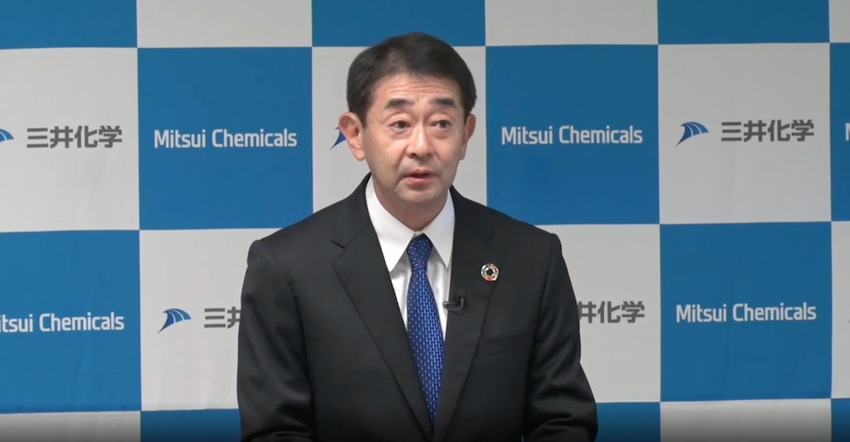President and CEO Osamu Hashimoto outlines the resin supplier’s strategy to develop more sustainable materials for mobility and other sectors.
December 7, 2022

Predicting a 10% upswing in polypropylene (PP) compound sales in the second half of its fiscal year ending in March 2023, Mitsui Chemicals President and CEO Osamu Hashimoto says the company is more than well-placed to serve the sustainability needs of its customers in the mobility segment moving forward. He was speaking in Tokyo at his annual CEO presentation.
“We have already received various requests from clients for the supply of recycled PP compounds incorporating post-consumer recyclate,” noted Hashimoto. Molders are currently evaluating colored compounds with 30 to 50% recyclate content exhibiting the same quality as virgin products, according to the company. “We are now working to establish a business model, particularly through our affiliate Advanced Composites in the United States,” he added.
Besides recycled grades, Mitsui Chemicals is also establishing frameworks for plastics based on chemically recycled feedstocks and biomass. In August, the company invested in Asian firm Apeiron Bioenergy, a leading collector and processor of renewable feedstocks including used cooking oil (UCO) and palm oil mill effluent (POME) in order to secure a source of bio-based feedstocks. Earlier, in December 2021, the company took delivery of its first shipment of 3000 tonnes of bio-based naphtha from Neste’s Singapore refinery. Subsidiary Prime Polymer then started shipping its first commercial PP grades, certified using the mass balance method in accordance with ISCC PLUS certification, in March 2022.
As earlier reported, Mitsui Chemicals is also in the process of developing its own bio-based production technology for propylene, involving the fermentation of various biomass, mainly non-edible plants, to produce isopropanol (IPA), which is then dehydrated to obtain propylene monomer.
In terms of chemical recycling, Mitsui Chemicals is partnering with Microwave Chemical Co. in an initiative aimed at commercializing the use of microwave technology in the chemical recycling of plastic waste. The two partners also plan to apply microwave technology to make carbon fiber via an energy-efficient process.
Carbon capture is another area that Mitsui Chemicals is contemplating. In October 2021, it established the Mitsui Chemicals Inc. – Carbon Neutral Research Center within Kyushu University’s International Institute for Carbon-Neutral Energy Research. One research target is conversion of captured carbon into methanol for use as a feedstock.
About the Author(s)
You May Also Like




